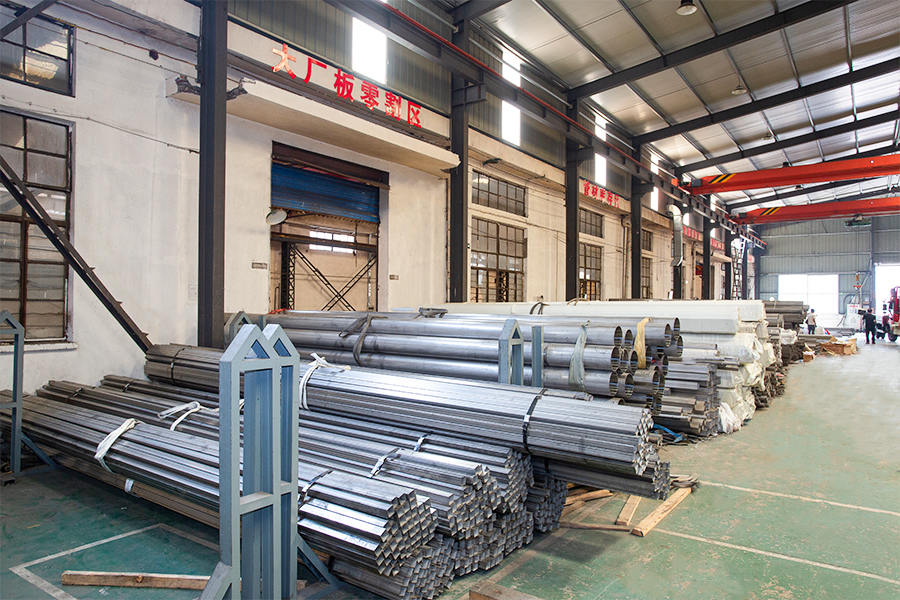Stainless steel pipes have earned a distinguished reputation in the food industry, owing to their remarkable combination of durability, hygiene, and corrosion resistance. As a material of choice for various critical applications, stainless steel not only meets but often exceeds the stringent requirements set by food safety regulations. Below, we explore the typical applications of stainless steel pipes in the food sector, illustrating their importance in maintaining product integrity, ensuring safety, and optimizing operational efficiency.
Transporting Liquids and Gases
One of the primary applications of stainless steel pipes in the food industry is the transportation of liquids and gases, such as milk, juices, and carbonated beverages. These pipes are preferred for their ability to resist corrosion and maintain the purity of the transported substances. Their smooth interior surface reduces the risk of contamination, while their resistance to high-pressure conditions ensures the safe transit of various food-grade fluids. Stainless steel’s ability to withstand both low and high temperatures makes it an ideal material for conveying sensitive ingredients, such as dairy products or oils, under controlled conditions.

Food Processing and Manufacturing
Stainless steel pipes are integral to the infrastructure of food processing plants, where they are used extensively in various manufacturing processes. From the initial stages of ingredient handling to the final packaging of products, stainless steel pipelines are employed in transporting raw materials, processing agents, and finished goods. The material’s non-reactive nature ensures that food products do not come into contact with harmful substances that could compromise their quality or safety. In facilities that handle acidic or alkaline substances, stainless steel pipes exhibit superior resistance to chemical degradation, making them an indispensable part of food production.
Steam and Heat Exchange Systems
Stainless steel pipes are crucial components in steam and heat exchange systems within food manufacturing plants. These systems are employed for pasteurization, sterilization, and cooking processes, all of which are essential for preserving food safety and extending shelf life. Stainless steel’s thermal conductivity and resistance to scaling and corrosion make it an optimal material for high-temperature operations. Whether it’s in steam generation or hot water circulation, stainless steel pipes ensure consistent and efficient heat transfer, facilitating precise control over temperature and processing time.
Beverage Industry Applications
In the beverage industry, where hygiene and the prevention of contamination are of paramount importance, stainless steel pipes are indispensable. Whether transporting water, juices, soft drinks, or alcoholic beverages, these pipes guarantee that no unwanted substances leach into the liquid, ensuring the product’s purity. Additionally, the resistance of stainless steel to oxidation and staining makes it an excellent choice for handling and storing beverages, particularly those that are prone to bacterial growth or spoilage. Stainless steel's non-porous surface prevents microbial accumulation, contributing to the overall sanitation and quality assurance within beverage production facilities.
Refrigeration and Cold Storage
Another crucial application of stainless steel pipes in the food industry is within refrigeration and cold storage systems. These pipes are used in refrigerant lines, which circulate coolants necessary to maintain low temperatures in food storage units. Stainless steel’s strength and resistance to extreme temperatures ensure that these systems function efficiently and reliably. By preventing the degradation of refrigerant materials, stainless steel pipes contribute to maintaining the optimal storage conditions for perishable food items, thereby helping reduce spoilage and waste.
Hygienic and Sanitary Applications
Given the rigorous hygiene standards required in the food industry, stainless steel pipes play an essential role in sanitary applications. The smooth surface of stainless steel minimizes the accumulation of food particles, bacteria, and other contaminants, which is particularly critical in environments where food products are directly handled or processed. These pipes are frequently used in clean-in-place (CIP) systems, where they facilitate the efficient and safe cleaning of food processing equipment without disassembly. The material’s inherent resistance to bacterial growth and ease of sterilization makes it the ideal choice for such sanitary processes, safeguarding both food quality and worker safety.
Packaging and Filling Systems
In food packaging and filling systems, stainless steel pipes provide reliable and hygienic pathways for the movement of products, whether it be solid, liquid, or semi-liquid forms. These pipes are used in automated filling lines that package a wide range of food products, including sauces, dairy products, and ready-to-eat meals. The precision and flexibility offered by stainless steel ensure that the filling process is smooth, efficient, and consistent, while its resistance to wear and tear extends the lifespan of the equipment involved.
In the food industry, where safety, quality, and efficiency are paramount, stainless steel pipes are an indispensable asset. Their versatility, coupled with their resistance to corrosion, contamination, and high-pressure conditions, makes them the material of choice for a wide array of applications. From food processing to packaging, refrigeration, and transportation, stainless steel pipes ensure that the movement, handling, and preservation of food products adhere to the highest industry standards. As the demand for safe, sustainable, and reliable food systems continues to grow, the role of stainless steel in the food industry will remain vital in shaping the future of food safety and quality assurance.


 English
English русский
русский عربى
عربى 中文简体
中文简体
